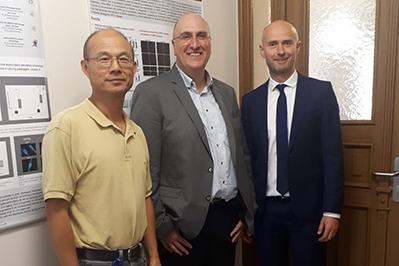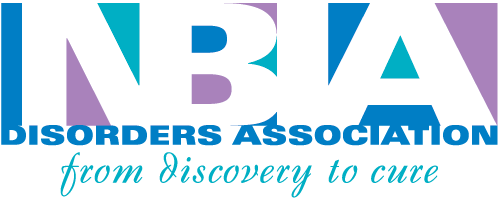Research team from Rostock receives grant for FAHN-research
Our sister organization in the USA, the NBIA Disorders Association, has awarded a $45,000 grant for research into the NBIA variant FAHN to a team of German scientists studying stem cells from patients with FAHN disease.
Project leader Professor Dr. Andreas Hermann and his team, Dr. Moritz Frech and Jiankai Luo from Rostock University Hospital, will use stem cells to create a model of fatty acid hydroxylase-associated neurodegeneration (FAHN) in the laboratory in order to better understand how the disease works. From this, the researchers can move on to testing potential therapies to see if they can reverse the effects of FAHN .

Dr. Jiankai Luo, Dr. Moritz Frech and Professor Dr. Andreas Hermann from Rostock University Hospital
The team plans to create a supply of patient-specific induced pluripotent stem cells that have the ability to become any cell in the body. They can also self-renew, which means they divide and produce more stem cells.
To develop these stem cells in the laboratory, cells are to be taken from the connective tissue of FAHN patients. The researchers then use a gene editing technology, CRISPR/Cas9, to add copies of certain genes to the cells, giving them the special characteristics of a stem cell. They can develop into cells of the central nervous system, which can be affected by FAHN .
The researchers will be working with Dr. Sunita Venkateswaran, an assistant professor and pediatric neurologist at the University of Ottawa. She is well established in the NBIA scene and will collaborate with the Rostock team on the research.
The project is entitled "In vitro disease modeling of fatty acid hydroxylase-associated neurodegeneration (FAHN): Patient-specific induced pluripotent stem cells and their neuronal derivatives as human models of FAHN". It is funded from March 1, 2020 to February 28, 2021.

